Our Team
AIIA Lab operates under the supervision of Professor Amir H. Gandomi, a globally recognized researcher in machine learning, evolutionary computation, and big data analytics. Prof. Gandomi is an ARC DECRA Fellow, a Highly Cited Researcher for six consecutive years, and has received multiple prestigious awards, including the 2025 Sigma Xi Young Investigator Award.
Professor
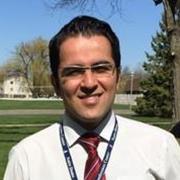
Prof. Amir H. Gandomi
Professor Amir H. Gandomi is a globally recognized researcher in machine learning, evolutionary computation, and big data analytics. He is an ARC DECRA Fellow at the Faculty of Engineering and Information Technology at UTS, where he is a Professor of Data Science. Amir H. Gandomi is among the world’s most cited researchers for his work in the fields of global optimisation and big data analytics, in particular, using machine learning and evolutionary computations. He is an ARC DECRA Fellow at the Faculty of Engineering and Information Technology at UTS, where he is a Professor of Data Science. He has received multiple prestigious awards for his research excellence and impact, such as the 2024 IEEE TCSC Award for Excellence in Scalable Computing (MCR), the 2023 Achenbach Medal (bestowed at Stanford University), and the 2022 Walter L. Huber Prize, the highest-level mid-career research award in all areas of civil engineering. Most recently, he received the 2025 Sigma Xi Young Investigator Award from Sigma Xi, The Scientific Research Honor Society, one of the world’s oldest and most prestigious multidisciplinary honour societies that counts 200+ Nobel Laureates, among them Albert Einstein. Amir has published more than 450 journal papers and 14 books, which collectively have 68,000+ citations (H-inex=110+), and he has been named one of the world’s most influential scientific minds and highly cited researchers by the influential Clarivate Analytics for six consecutive years. He is also ranked 18th among more than 17,000 researchers in the online computer science bibliography, Genetic Programming bibliography, and ranks first in Australia. In the most recent impactful researcher list, done by Stanford University and released by Elsevier, Prof Amir H Gandomi is ranked as the 24th researcher in the Artificial Intelligence & Image Processing subfield in 2023. He has served as associate editor, editor and guest editor in several prestigious journals, such as AE of IEEE TBD, IEEE Networks, and IEEE IoTJ. He regularly delivers keynote addresses at major conferences. Prior to joining UTS, Amir was an Assistant Professor at the School of Business at Stevens Institute of Technology in the US. He was also a distinguished research fellow in the BEACON Center at Michigan State University, where biologists, computer scientists, and engineers together study evolution and apply their knowledge to real-world problems.
PhD Candidates

Navid Yazdanjue
Navid Yazdanjue is an Industry Ph.D. candidate with the Digital Finance Cooperative Research Centre (DFCRC) at the Data Science Institute, University of Technology Sydney (UTS), working with Cyber Intelligence House (CIH) as his industry partner. He was awarded the DFCRC Industry PhD Scholarship and the UTS President’s Scholarship in 2022. He earned his M.Sc. in Information Technology from the Iran University of Science and Technology (IUST) in 2018 and served as a Research and Teaching Assistant at IUST from 2019 to 2022. His research interests include applied machine learning, natural language processing (NLP), metaheuristic optimization, evolutionary computation, social network analysis, privacy preserving, and cybersecurity.
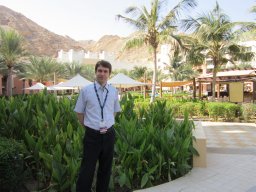
Siamak TalatAhari
Siamak Talatahari received the Graduate degree in structural engineering. His research interests include data science (DS), machine learning (ML), and artificial intelligence (AI) and their application on engineering. Thanks to introduce, improve, hybridize, and apply DS/AI/ML methods, he has published over 150 refereed international journal articles, three edited books in Elsevier, and ten chapters in international books. The citation of his works is over more than 10,000. He is recognized as a “Top One Percent Scientist of the World” in the field of “Engineering” and “Computer Sciences” for several years. He was also recognized as a “Distinguished Scientist of Iranian Forefront of Sciences,” a “Most Prominent Young Engineering Scientist,” a “Distinguished Researcher,” a “Top Young Researcher,” a “Most Acclaimed Professor,” and a “Top Researcher and a Teacher.” In addition, he has been selected to receive “The World Academy of Science Young Affiliateship.” He served as the lead or a guest editor of some special issue on different journals.

Mohammad Sadegh Khorshidi
Mohammad Sadegh Khorshidi is a Ph.D. candidate in Information Systems at the Data Science Institute, University of Technology Sydney (UTS). His doctoral research, Systematic Gene Structure in Genetic Programming, focuses on advancing machine learning and genetic programming through innovative data analytics and statistical methods. He holds M.Sc. and B.Sc. degrees in Civil Engineering from Shiraz University, Iran (2017 and 2014). Mohammad is a recipient of the Australian Research Council’s DECRA Ph.D. Scholarship and has published in reputable journals across AI, computer science, hydrology, and environmental science. He also serves as a reviewer for multiple journals and was awarded the Institute of Physics’ Trusted Reviewer status in 2024 and 2025.

Hassan Gharoun
Hassan Gharoun received the master’s degree in industrial engineering from the University of Tehran, Tehran, Iran. He is currently working toward the Ph.D. degree in the field of analytics with the University of Technology Sydney, NSW, Australia, where his doctoral research focuses on uncertainty-aware machine learning models. He applies data-driven approaches to address industrial challenges, particularly in healthcare. He was a Reviewer for esteemed journals such as IEEE TRANSACTIONS ON NEURAL NETWORKS AND LEARNING SYSTEMS and IEEE INTERNET OF THINGS JOURNAL. His research interests include probabilistic ML and meta-learning
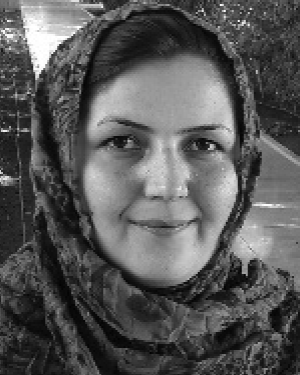
Behnaz Nouhi
Behnaz Nouhi received the bachelor’s degree in pure mathematics and the master’s degree in applied mathematics from the University of Tabriz. Her research interests include dynamic systems, chaos, optimization, and machine learning methods. In addition, she has been actively involved in the area of numerical methods, especially in chaotic-based algorithms. Recently, she has been engaged in research in the area of automatic machine learning.

Reihaneh Kardehi Moghaddam
Reihaneh Kardehi Moghaddam is a PhD student at the University of Technology Sydney (UTS) and a researcher in the Department of Electrical Engineering at the Islamic Azad University, Mashhad Branch, Iran. Her work spans nonlinear and optimal control, adaptive neural network control, and optimization-based methods for complex dynamical systems. She has published research on optimal control design, model predictive control, metaheuristic-driven control strategies, and adaptive neural control. Her contributions also include control-oriented modeling of biomedical systems, particularly HIV infection dynamics, where she develops robust and uncertainty-aware control policies.

Mohammad Bagher Naghibi Sistani
Mohammad-Bagher Naghibi-Sistani received the B.Sc. (Hons.) and M.Sc. (Hons.) degrees in control engineering from the University of Tehran, Tehran, Iran, in 1991 and 1995, respectively, and the Ph.D. degree from the Department of Electrical Engineering, Ferdowsi University of Mashhad, Mashhad, Iran, in 2005.,From 2001 to 2005, he was a Lecturer at the Ferdowsi University of Mashhad, where he is currently an Assistant Professor. His current research interests include artificial intelligence, reinforcement learning, and control systems.
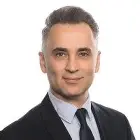
Fahad Fattahi
Farhad Fattahi is an experienced engineering and business excellence professional based in Sydney, Australia, with more than 20 years of industry experience. His background spans product development, process improvement, and operational optimisation, and he is currently working at Allianz. He is also a PhD student at the University of Technology Sydney (UTS), where he is conducting research on a holistic health project. Farhad remains active in professional and innovation-focused communities, engaging in topics related to technology, business consulting, and startup development.
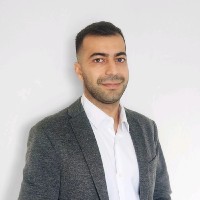
Kasra Ranjbarigderi
Kasra Ranjbarigderi is a Sydney-based professional currently working at Zurich Insurance. He holds an academic affiliation with the University of Technology Sydney (UTS), where he is focusing his research on uncertainty reduction in artificial neural networks (ANNs). With experience spanning data analytics, machine learning and operational risk, Kasra remains active in bridging industry deployment of AI techniques with robust academic investigation.